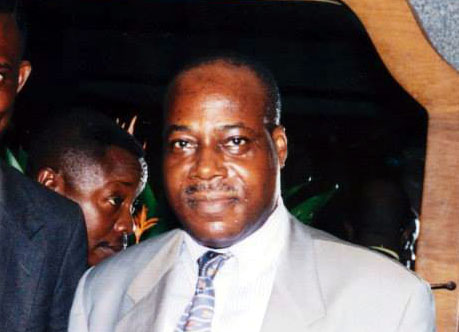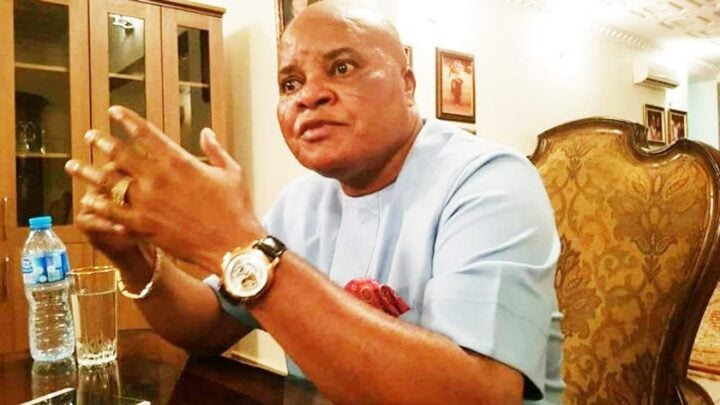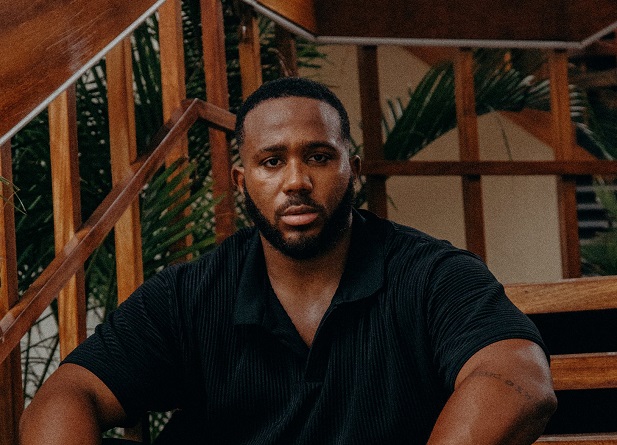In journalism, we no longer know what to call him: elder, veteran, colossus, deity, or ancestor. When there are too many members in a particular cult, the ‘cultness’ is no longer profound. Today, you have a crowd of elders such that you can no longer tell who is a real elder in the congregation. Journalism has produced so many veterans who earlier looked small before giants. We have a coterie who emblazon themselves with the tag of a colossus, plus a crowd of deities with faded totems who no longer deserve sacrifice. In such a conglomeration, calling Uncle Ray an ancestor would look more like it. Ancestors are dreadful, monumental, and deserving of obeisance. In journalism, Uncle Ray (Ray Ekpu) would fit into the pantheon of ancestors because of his monumental awesomeness.
Uncle Ray happened to journalism when the nationalists, who used journalism as their practice and playing field, were fading away. From the ashes of that set of practitioners powered by nationalistic aggressiveness emerged a group of professionals who used fine prose and poetic imagery to deliver reports of events and happenings in various forms to their audiences. The pen was not just mightier than the sword, it became the instrument through which patriotism was couched in deserving words and delivered through the mass media. That was the era when professionals like Uncle Ray played in the centre-forward of a team of fantastic pen-pushers. He started with one of the top teams in the local league, the Nigerian Chronicle, and moved onto the premier league where he featured in a number of top rated teams like the Sunday and Business Times and the Concord Group, and then to Newswatch Magazine, where he played alongside Dele Giwa, Dan Agbese, Yakubu Mohammed, and Soji Akinrinade, among others.
Although Nigerian journalism did not lack highly acclaimed professional news magazines, as there were the likes of Newbreed, African Concord, African Guardian, etc., Newswatch opened a new chapter in investigative journalism. It was not just the stories, but the way they were packaged and delivered. Again, Nigeria never lacked fine writers, but Newswatch entered the scene with writers who had some niche in their pens: writers with style – those who used written words to deliver messages in pleasant tones. Some of them had trademarks on their pieces; they were in a class of their own. In fact, one of its columnists, Adebayo Williams, advertised his style when someone tried to side-swipe him over his highly aristocratic deliveries. In a follow-up entitled: “Advertisement for My Style,” the erudite scholar, essayist, and author said he had no apologies for those he described as being intellectually lazy. Of course you needed some grey matter to be on their trail.
They all had style, with cult followers. Uncle Ray was second in command to Dele Giwa, who was captain of the Newswatch team. He has been consistent with his journalism vehicle, “Ray.” At the Chronicle, his column was known as “Ray,” with a motif of rays issuing from his mugshot. He kept it up to this day. His pieces were and still are like those from a craftsman’s shop. They conjure pictures. Imagery sits on his pen as he rushes through the communication turf. His mission has always been to deliver the message the way it should be delivered. Where the ordinary English word becomes inadequate or fails to deliver the intended meaning in his mind, he creates one or, better yet, puts it in a way that creates meaning to effectively deliver the message. At the height of his craftsmanship, he was dubbed the “wordsmith.”
Advertisement
It is difficult to say whether language is his first or second nature. I would not know if he speaks any other language apart from his native Annang and the adopted English language. On the two, I can swear that he uses them with depth. And, it flows easily. In his local community, Ikot Udo Osiom, in Ukanafun Local Government Area of Akwa Ibom State, you would hardly know the difference between the locals and this global icon who has seen the colour of so many countries in words, pictures, and reality. Just as he uses the English language, he does the same with Annang, to the pleasant astonishment of even the locals. He would use the same words with a common meaning in several circumstances to build or dismiss entrepreneurs, politicians and busy bodies, respectively. A conversation with him is an excursion into the world of time. So words, language, and communication are like pieces of beads on his wrist, a twist of which delivers the appropriate messages to the listener, the reader, and even the curious onlooker.
Journalism, and in fact, writing, is one affliction of Uncle Ray that has defied deliverance. He has come across several opportunities that would have made him a godfather to climes and entities, but he would rather be a godfather in journalism than anything else. In all his life, he has not done anything else of note except journalism. The way he is going, that deliverance might never come. The principality that hung that spirit on him must have died with the antidote. He loves journalism like Satan loves sinners! His younger brother, Census ventured into journalism, Uncle Ray almost got him sucked in, but the young Ekpu escaped and never looked back.
Census grew up with him. He started off after school as an intern in the newsroom. He saw the stress, and saw no commensurate reward. He was looking for an excuse to bolt but was afraid his elder brother might not take it kindly. He prayed for a tangible excuse. One day, a reporter collapsed and died in the newsroom of the Daily Times, where he served. He had seen other near-incidents, but when this one happened, Census told himself, “This is it; I’m done.” The following day, Uncle Ray noticed the young man was not preparing for work. He inquired, and the younger Ekpu narrated a story of stressful moments and deaths. The man looked at him, invited him outside, pointed to the cars in the garage and the big house they were living in, and told him pointedly that all those were rewards from journalism. ‘Census, journalism does not kill; otherwise, I would have been dead long ago. Go right inside, prepare, and go to work now.” That is how tied to the call Uncle Ray is!
Advertisement
I have been privileged to know him at close quarters, and I have seen two sides of him: very strict and very jovial. But you need to have the wisdom of the Men of Issachar to navigate the two: time and season determine the availability of accommodation. To him, discipline is a creed that must be recited in action, not only in words. The world can go to hell if he believes in an issue and takes a stand. Even though he could be a bona fide team player, he is not a crowd walker. He does not mind a solitary path as long as it leads his conscience to freedom. On the social side, Uncle Ray can be a startling revelation to those who only meet him in formal environments. He is such a lively man and enjoys his life without apologies to anyone who thinks or believes otherwise. A great family man he is, you would want to belong to his clan.
Although Uncle Ray carries no air, the wind of his monumentality will always announce his presence. At three scores and fifteen, he has created some difficulty in categorisation by the younger persons in journalism, the business he has spent so much of everything on. In spite of his fatherly mien and very social disposition, the only appellation that comes easily and is likely to do justice to his monumentality is to see him as a living ancestor of the profession. Now at 75, I loudly say Obongowo, may your days continue to be colourful. Happy birthday!
James is a Fellow of the Nigerian Guild of Editors
Advertisement







